Table of Contents
- Introduction
- Bamboo vs. Cotton Quilts: An Overview
- Benefits of Bamboo Quilts
- Benefits of Cotton Quilts
- Highlight: Souverhome Bamboo Duvet Cover
- Comfort Comparison
- Durability Comparison
- Eco-Friendliness & Sustainability
- Price and Maintenance
- Which Is Better for You?
- Summary Table
Introduction
Choosing between a bamboo quilt and a cotton quilt depends on your preferences for comfort, sustainability, skin sensitivity, and budget. Both materials are popular in 2025 for their breathability and softness, but each comes with distinct characteristics. In this article, we’ll compare the pros and cons of bamboo and cotton quilts, using the Souverhome Bamboo Duvet Cover as an example of how bamboo fabric elevates your sleeping experience.

Bamboo vs. Cotton Quilts: An Overview
- Bamboo quilts are made from bamboo-derived viscose or rayon fibers, known for being soft, breathable, and eco-friendly.
- Cotton quilts are typically made from 100% natural cotton—either regular, organic, or long-staple—which is highly breathable and widely used worldwide.
Key Consideration: Bamboo excels in coolness and sustainability, while cotton offers familiarity and strong moisture absorption.
Benefits of Bamboo Quilts

1. Superior Temperature Regulation
- Breathable and moisture-wicking: Perfect for hot sleepers and summer use.
- Cooling comfort: Bamboo fabric stays cool to the touch and helps prevent overheating.
2. Hypoallergenic and Gentle
- Safe for sensitive skin: Naturally antibacterial and free of irritants.
- Pet hair resistant: Ideal for pet owners who struggle with fur on bedding.
3. Eco-Friendly and Sustainable
- Low-impact farming: Bamboo grows rapidly without pesticides or excessive water.
- Sustainable choice: A renewable resource with ethical production practices.
4. Ultra Softness
- Silky texture: Feels similar to high-thread-count cotton or satin.
Benefits of Cotton Quilts

1. Classic Comfort
- Familiar texture: Crisp or smooth feel depending on weave (percale or sateen).
- Widely available: Found in a range of thread counts and finishes.
2. Excellent Breathability
- Natural ventilation: Allows for airflow while still retaining warmth when layered.
3. Durable and Long-Lasting
- Sturdy material: Withstands repeated washing and daily use.
4. Budget-Friendly Options
- Wide pricing range: Available from economical to luxury tiers.
Highlight: Souverhome Bamboo Duvet Cover
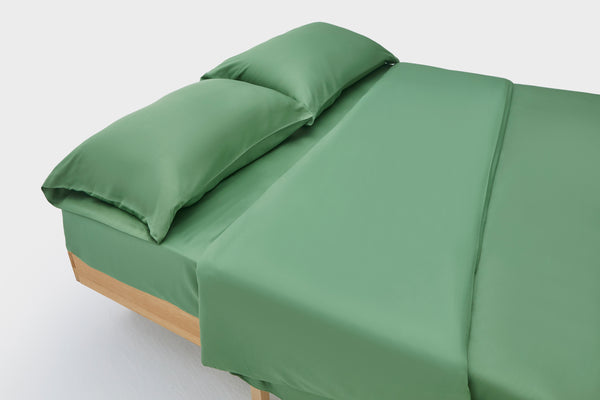
The Souverhome Bamboo Duvet Cover is a standout example of what bamboo bedding has to offer in 2025:
- Material: 100% premium viscose from bamboo
- Comfort: Cloud-like softness with cooling, breathable properties
- Health Benefits: Hypoallergenic, antibacterial, and ideal for sensitive skin
- Design: Equipped with 8 corner ties to keep your duvet securely in place
- Sustainability: Ethical sourcing and production, proudly eco-friendly
Why We Love It: The Souverhome cover solves common pain points like overheating and slipping duvets, offering comfort, function, and longevity in one package.
Comfort Comparison
Bamboo: Luxuriously Soft & Cool
- Softness: Bamboo is noticeably softer than most cotton varieties, especially when new.
- Cool to the touch: Its thermoregulating fibers are perfect for hot sleepers.
Cotton: Familiar & Adaptive
- Comfort varies: Long-staple and sateen cotton offer excellent softness.
- Seasonally flexible: Warmer in winter, breathable in summer.
Durability Comparison
- Bamboo: Durable when cared for properly, but may be prone to pilling with harsh detergents.
- Cotton: Highly durable, especially in percale or high-thread-count weaves. Holds up better to frequent washing.
Eco-Friendliness & Sustainability
Bamboo
- Highly sustainable: Bamboo grows rapidly without fertilizers or pesticides.
- Less water usage: Compared to cotton, bamboo requires significantly less water to grow.
Cotton
- Organic options: GOTS-certified organic cotton is more eco-friendly but can be costly.
- Water-intensive: Traditional cotton farming uses more water and pesticides.
Price and Maintenance
Bamboo
- Moderate to premium pricing: Often priced slightly higher than regular cotton.
- Washing care: Machine washable, but recommended to use gentle cycles and avoid fabric softeners.
Cotton
- Wide price range: From budget options to high-end Egyptian or Supima cotton sets.
- Easy maintenance: Generally machine-washable with fewer special requirements.
Which Is Better for You?
- Choose bamboo if you’re a hot sleeper, have sensitive skin, or prioritize sustainability and softness.
- Choose cotton if you want a classic, durable, familiar quilt that works well in all seasons and offers easy care.
Expert Tip: Many users opt for a hybrid strategy—using cotton in cooler months and bamboo during warmer seasons.
Summary Table
| Feature | Bamboo Quilt | Cotton Quilt |
|---|---|---|
| Softness | Extremely soft, silky feel | Soft to crisp depending on weave |
| Breathability | Excellent, ideal for hot sleepers | Very good, naturally airy |
| Temperature Regulation | Superior cooling effect | Balanced, adaptable to seasons |
| Hypoallergenic | Yes, naturally antibacterial | Some organic options are hypoallergenic |
| Eco-Friendliness | Highly sustainable | Organic cotton is eco-friendly; regular cotton less so |
| Durability | Good, but needs careful handling | Excellent, especially in high thread counts |
| Maintenance | Requires gentle washing | Low-maintenance, machine-washable |
| Price | Moderate to premium | Wide range: budget to luxury |

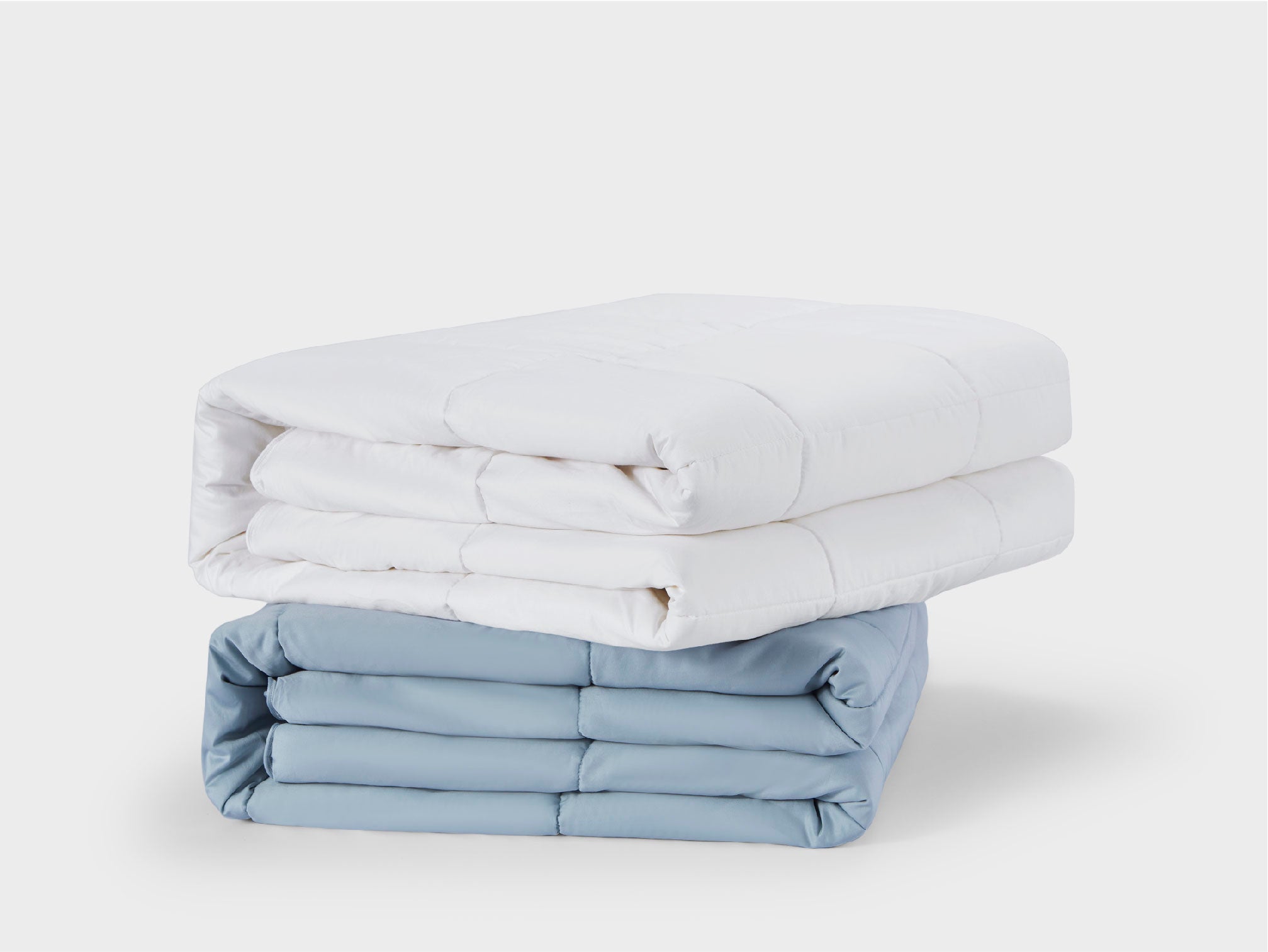
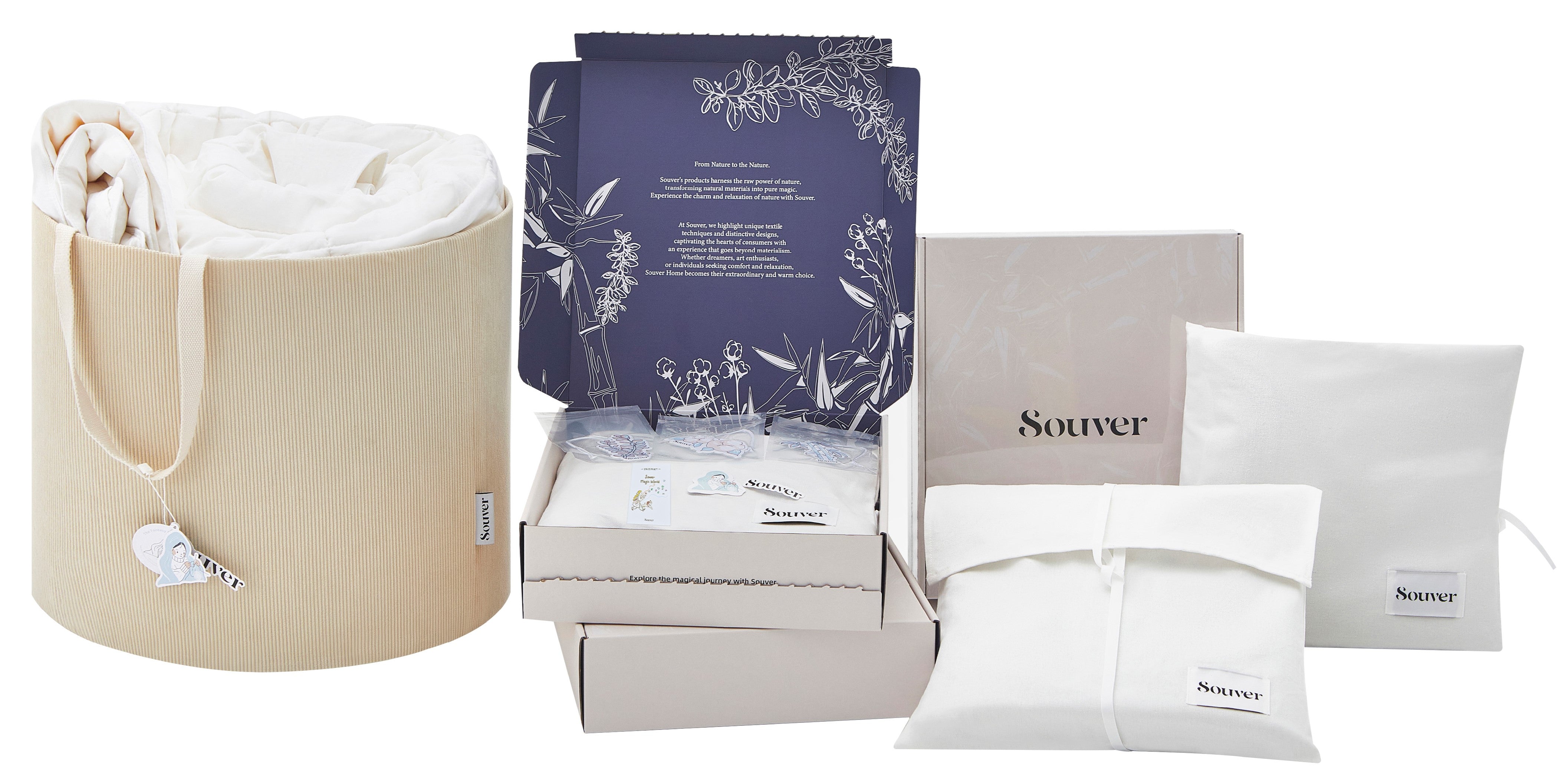


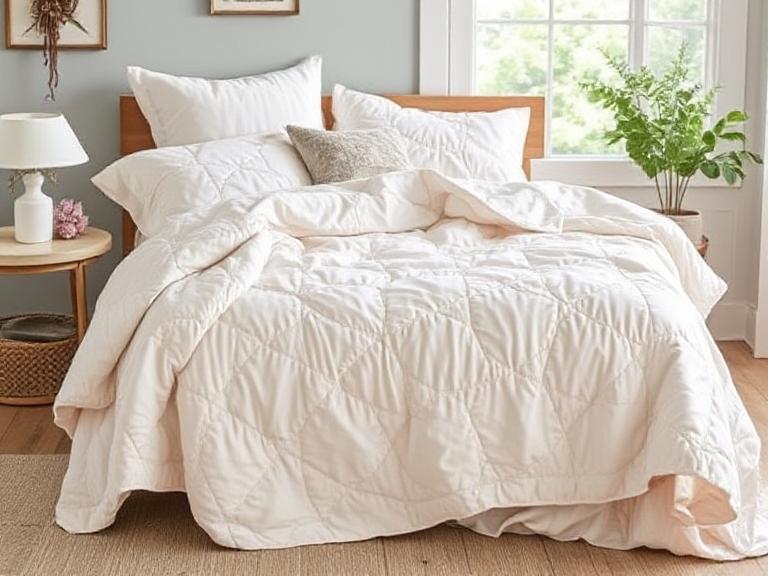
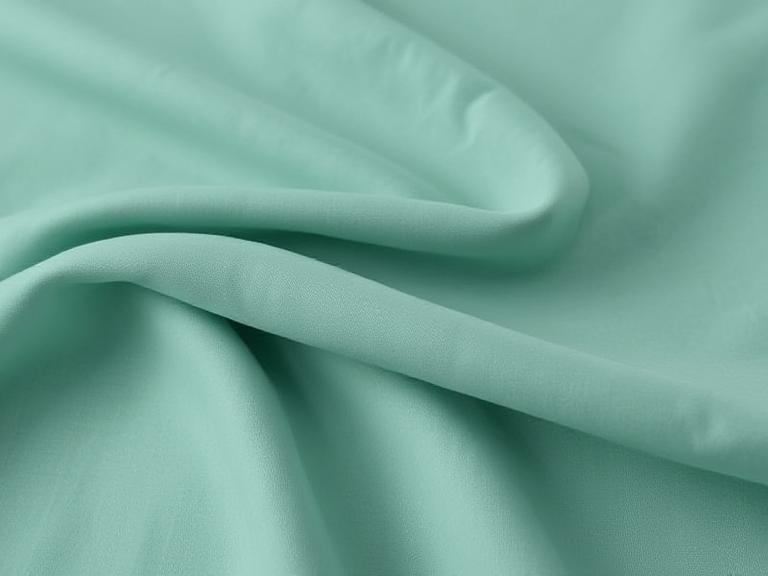

Leave a comment
This site is protected by hCaptcha and the hCaptcha Privacy Policy and Terms of Service apply.